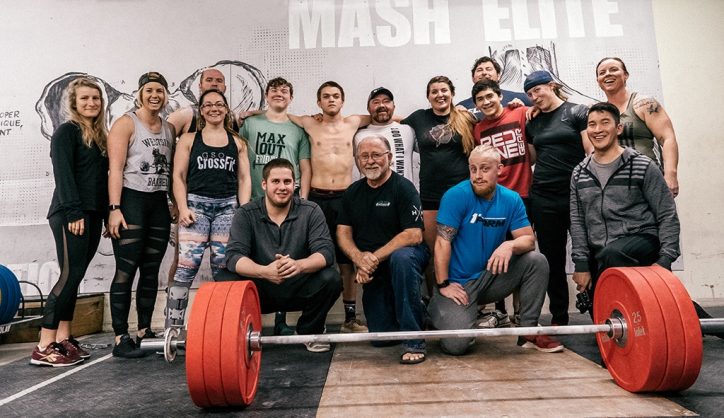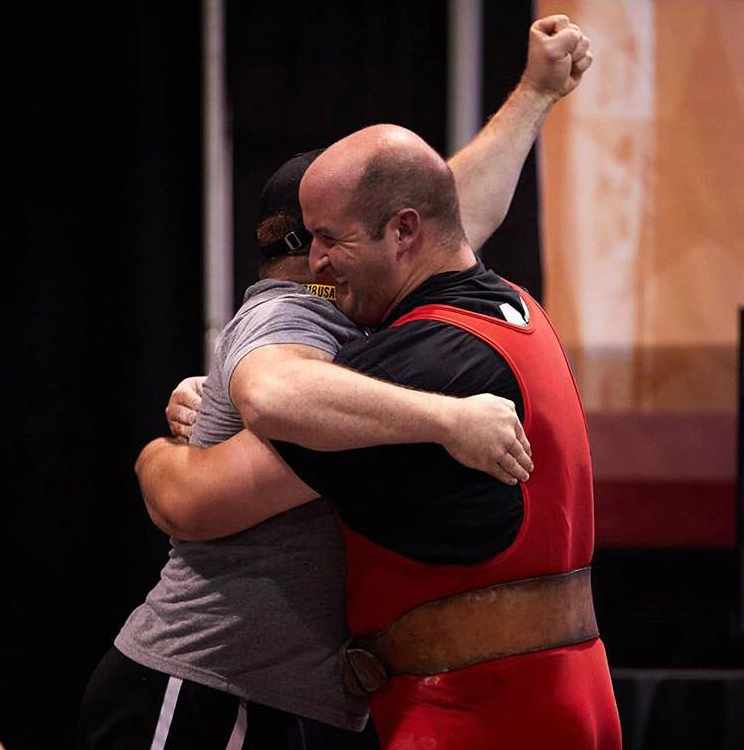Every athlete is an individual.
Coaching them to greatness requires you to learn about who they are and how they think – and then to put this knowledge into practice.
Right now I am reading Conscious Coaching by Brett Bartholomew, and I have to give this book a big thumbs up. I thought it was going to be some guy’s opinion about how to get buy-in from your athletes. I was totally wrong. Coach Bartholomew does a great job of using science and research to come up with a list of archetypes, which is a system of classifying athletes based on their personality traits.
He goes on to define each archetype with their pros and cons, and he gives you some pointers on how to deal with each archetype. I am going to read this book a couple of times and put it to practice before I give a complete report. However, I can say right now it already has me thinking about each of my athletes… and that’s a lot of people.

THE CHALLENGE
Some of my athletes are easily classified. But others are hard to put a finger on – like Hunter Elam. She was talking yesterday about being hard to coach, and I laughed it off. She’s like a seven-sided Rubik’s cube, which might freak some coaches out. However, I enjoy the challenge – and that’s why her performance at the AO3 was so emotional.
There was so much thought that went into her performance. We lost 9 kilograms of bodyweight to get to 64 kilograms. We had to get stronger during that process to beat all those amazing women in the 64kg class (minus Mattie Sasser, of course). She had to hit that huge 121kg clean and jerk opener. We had to prepare her mentally for competition, which is the hardest part for most weightlifters. Team sports don’t prepare you for an individual sport like weightlifting. It’s just you out there on the platform with the three judges and all the people in the crowd staring at you waiting for you to succeed or miss. All of the training and preparation comes down to just six attempts. It doesn’t matter how well training went or how bad it went. It all comes down to those six minutes of your life. Your dreams will either come true or falter in those six minutes.
[thrive_leads id=’8207′]
GOLDEN RULE
How do you get to know your athletes to prepare them for their individual sport? There’s one thing that Brett says that I disagree with but just in degree. He says that the golden rule (“treat people the way you want to be treated” or the biblical “love your neighbor as you love yourself”) is wrong. He says people want to be treated the way they want to be treated. I agree, but I think he’s reading to deep into the golden rule.
Everyone wants to be treated with respect. Everyone wants to be treated fairly. Everyone wants to be heard. These are the keys to understanding what archetype you are dealing with. If you don’t get these basics right, you’ll never get to the suggestions that he gives for dealing with each archetype.
WHAT A COACH SHOULD BE
These qualities I’m suggesting can be quite rare in coaching – especially in the strength and conditioning world. Too often the role of the strength and conditioning coach, weightlifting coach, or powerlifting coach is filled with a Type-A personality who wants to beat his chest, bark out some commands, and never be questioned. If you’re in the university setting that may work because the athletes have to listen to what you say. I don’t think that this gets the best results, but they can do what they want.
The problem with the university coach is they can hide behind good recruiting and a good relationship with the head coach. Personally I think the standards need to increase instead of it being the good ol’ boy network. We’ve all seen the crazy videos of athletes performing heavy lifts with terrible form while the shirtless strength coach is screaming and yelling to pump him up. Look, I am all for bringing the juice if there are some brains and substance behind it.
Coach Joe Kenn is a great example of what a strength coach should be. Yeah, he’ll pump you up – but there is substance and reasoning behind everything he does. His son, Peter, is going to be amazing as well. Peter has spent his life preparing to be the best strength and conditioning coach on the planet. He’s worked with me to perfect his weightlifting technique, and he’s worked with Coach Chris “Ox” Mason and me on his powerlifting technique. He’s going to end up with his Master’s Degree in Exercise Science from Appalachian State University – and don’t forget that he’s grown up with the man himself. He will be prepared to coach!

MUST HAVES
Here are some qualities that a good coach in the strength world has to have:
RESPECT
You have to respect each of your athletes. Respect will earn you the ability for athletes to open up to you. If you disrespect an athlete, you can expect to never know or understand that person. No one is going to open up to someone who doesn’t respect him or her.
LISTEN
Listen to your athletes! They will normally tell you everything you need to know. This is how you figure out what archetype you are dealing with. You have to get to know each and every one of your athletes by asking a question… and then shutting your mouth and listening. Listening is a skill that very few people possess. Most people feel like they need to be talking. Here’s some news for all of you: the person talking isn’t learning anything. The quiet person is learning everything.
TREAT PEOPLE FAIRLY
This is a tough one, and this quality needs to be nurtured. We are all naturally drawn to certain types of people – but as coaches, each one of our athletes needs to know without a doubt that we have their best interest in mind.
One process I am going to institute is more scheduled one-on-one meetings with my athletes. I want to know their struggles in life and in the gym. Struggles in life affect results in the gym. Let me give you an example. If an athlete is working more on a job or is having to study more (both of which affect sleep), that’s a great time to lower volume and/or intensity to match the added stress in life. I know that we want our athletes to live this perfect life where they get nine to eleven hours of sleep per night, but that’s not the real world all of the time. A good coach adapts to life’s circumstances while encouraging the athlete to work towards a better situation.
INDIVIDUALIZATION IS THE FUTURE
I believe the next big movement in the strength world will be toward individualization. I’m not just talking about programming. I’m talking about everything from recovery to mobility to nutrition – and yes, I am definitely talking about programming and everything involved with programming. One solid truth I know about the human body is that there aren’t two alike. If that’s true, how can one program ideally work for a big group?
I just wrote The Mash Files, which talks about all the different ways I currently individualize for each of my athletes. We’ve had a lot of success lately, and I attribute this success to our individualized approach. I’ve worked hard researching all the ways to perfect individualized coaching, and now it’s time to pass it on to you guys. Like always, I want you and your athletes to benefit from the same knowledge that is helping my athletes crush it.
[thrive_leads id=’11154′]
As always, thank you so much for reading and following this crazy team of mine! The only way I can support these amazing athletes is from the help and support of all of you.
